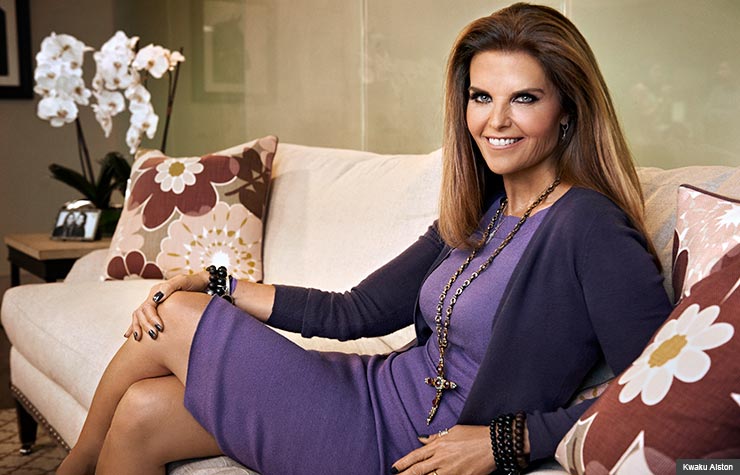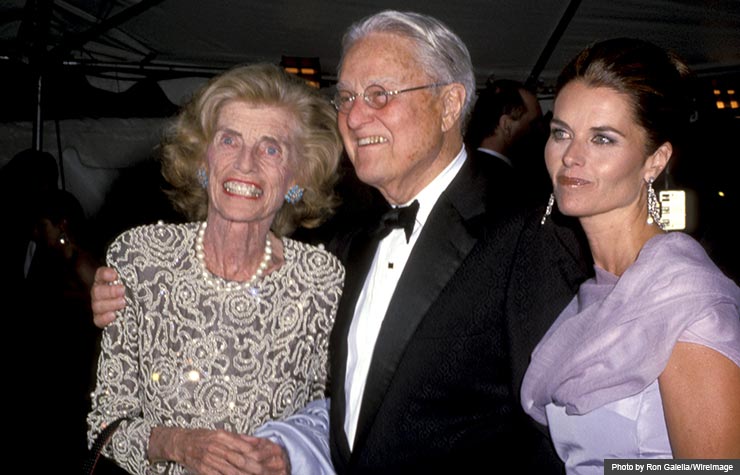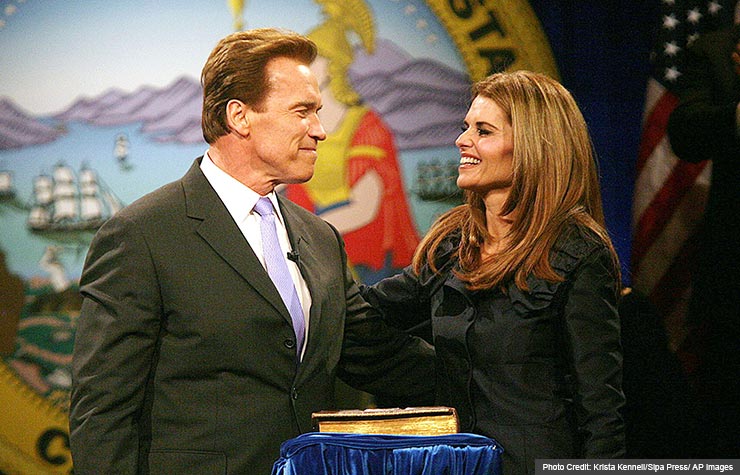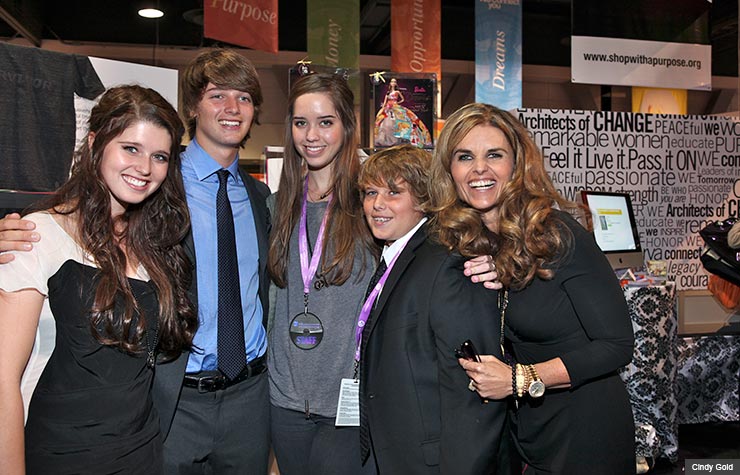AARP Hearing Center


Her bona fides are widely known: She’s a fourth-generation Kennedy. Daughter of Eunice and Sargent Shriver. Separated spouse of Arnold Schwarzenegger. Former first lady of California. Mother. Journalist. Author. Yet when Maria Shriver welcomes visitors into her light-filled Los Angeles office, she introduces herself simply as “Maria.”
In person, she seems a strong presence, tall and more curvaceous than one might expect — and serene, unlikely to be rattled.
Raised Catholic, she wears bracelets of Tibetan-style prayer beads, and amid the images of angels and crosses in her work space are statues of Buddha and compassion goddess Guanyin, candles and inspirational messages. “Difficulties are opportunities for inner growth,” reads one. “The two most important days in your life are the day you were born and the day you find out why,” reads another.
All around are framed photographs: Shriver on the dais at The Women’s Conference, a Southern California gathering she hosted from 2004 through 2010; Shriver with Michelle Obama and Oprah Winfrey; Shriver and her four children: Katherine, 23; Christina, 22; Patrick, 20; and Christopher, 16. (Noticeably absent in the photos is Schwarzenegger, who we’ve been warned is off-limits as a discussion topic.)
When she is asked which of her many roles is her favorite, Shriver pauses, then says, “I’m trying to get away from roles. I used to identify myself strictly in terms of my role, but when your roles fall away, part of you falls with them.”
At 58, Shriver has experienced spectacular achievements, but certainly more than her share of losses. Aunts, uncles and cousins have been tragically taken, and in 2009 her mother died, followed in 2011 by her father, who suffered from Alzheimer’s disease; toward the end, he no longer knew his daughter’s name.
Shriver gave up her job as an NBC News anchor in 2004 after her husband was elected California governor, to be a better advocate for him; in May 2011, just months after he left office, the couple announced their separation after Schwarzenegger admitted to secretly fathering a son 14 years earlier with the family’s longtime housekeeper, Mildred Baena.
Though their divorce is not final, Shriver clearly is moving on. While still placing a priority on her children, she is now taking time to focus on herself. “That’s certainly been a struggle for me,” she says.
Shriver recently signed back on with NBC. She runs two websites — The Shriver Report, about societal issues American women face, and Maria Shriver, which profiles people she calls “architects of change.” (Learn more by watching the video at the bottom of pages 2, 3 and 4.) In January she will publish her third “Shriver Report,” about women living on the brink economically.
Referring to 2011 as a year in which “I was trying to reimagine my life,” Shriver tucks a tendril of her long, thick hair behind an ear and says, “You have to be willing to let go of the life you planned in order to make the life you’re meant to live.”
AARP Members! Save 10% on purchases of classic DVDs & Blu-ray discs with Movies Unlimited
AARP: For a time, you, like many in the sandwich generation, juggled simultaneously caring for your kids and your parents. What was that experience like?


Maria Shriver: It’s emotionally challenging trying to raise your kids — and parent your parents at the same time. That’s challenging no matter what economic group you’re in. There’s a gaping hole in my day that was taken up talking to my brothers about my parents, talking to doctors about them, going cross-country, managing stuff. But not a day goes by that I don’t miss my parents. If I had a choice to have them here, I’d do that all again.
Your oldest children have now graduated from college. Are you still really involved in parenting?
MS: I feel that it’s my job on a daily basis to love my four children unconditionally and to focus on them. I still have a son who’s in high school. I work any job around him and his schedule.
You recently went back into television journalism. How does that fit in?
MS: I’m blessed that they let me come back in a limited capacity. My goal is to put my toe back into journalism so that by the time Christopher leaves for college, I’ll have something that I can transition to full time.
AARP Blog: Maria Shriver returns to NBC with a focus on women
Has it been hard to get back into that work?
MS: When you leave your career, it’s hard to find your way back. People move on. Things change. The technology’s different.
You recently hosted a series on Alzheimer’s. What message did you most want to get across?
MS: That Alzheimer’s is a boomers’ disease. And that young people should care about Alzheimer’s because they’re going to end up taking care of their parents — financially, emotionally and physically. It rattles your whole family dynamic, and it’s not something that’s going to happen some other time. It’s happening now — at the rate of every 68 seconds someone in America develops Alzheimer’s.
Your NBC beat is women’s issues. Why that focus?
MS: I spent a long time living that beat — being a child of the women’s movement and the mother of daughters who want to do it differently. And that beat includes reports on women and men: men’s changing gender roles; women’s financial, emotional and spiritual health. How we interact with men. How we raise our sons.
Next page: The "power of the pause." »
































































More on Entertainment
10 Essential Boomer Books
Novelist Erica Jong shares her list of the 10 essential books of the baby boomer generation10 Essential Boomer Movies
Famed director Oliver Stone picks iconic films from the boomer generation
A Life of Service, Ethel Percy Andrus choose "To serve, not to be served."